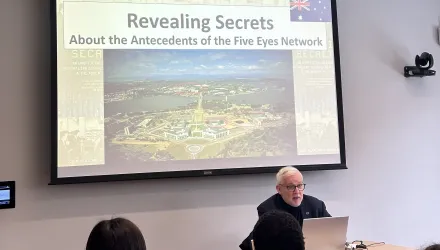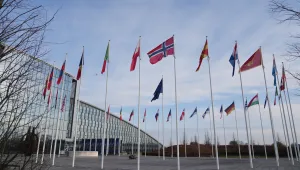Leaving Theory Behind: Why Too Much Hypothesis Testing is Bad for International Relations
Theory creating and hypothesis testing are both important elements of social science. Unfortunately, in recent years the balance between theory creation/refinement and the testing of empirical hypotheses has shifted sharply toward the latter. This trend is unfortunate, because insufficient attention to theory can lead to misspecified models and overreliance on misleading measures of key concepts. In addition, the poor quality of much of the data in IR makes it less likely that these efforts will produce useful cumulative knowledge.
Please join us! Coffee and tea provided. Everyone is welcome, but admittance will be on a first come–first served basis.



